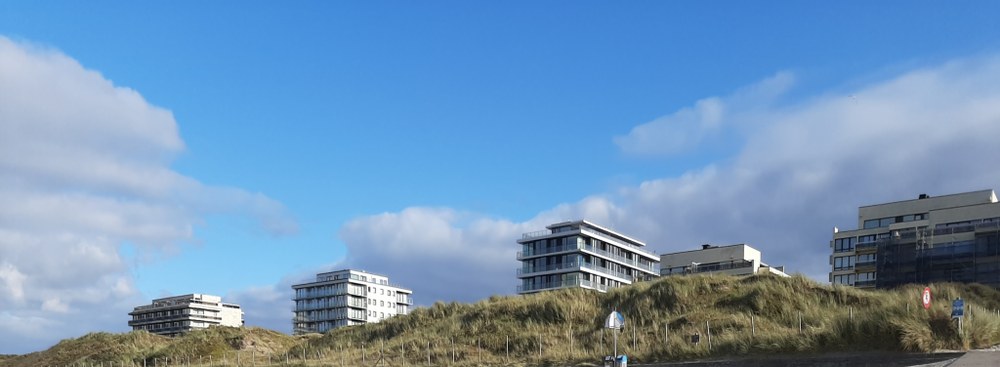
Better water and soil management on the coast with Blue Transition
The coastal dune area in Belgium is highly urbanised, resulting in a decline in natural groundwater recharge. Within the European Blue Transition project, we are therefore working with various partners to better equip the North Sea region to cope with the effects of climate change in the future.
What and why?
Blue Transition is a project within the Interreg North Sea Region programme. The project aims to bring about systematic change, a “blue transition”, through integrated water and soil management. The coastal dune areas play an important role in this.
These areas have multiple functions: they protect the low-lying polder area against flooding and salinisation, offer tourist and ecological value, and are an important source of fresh water for drinking water supplies.
Blue Transition in Flanders: management of fresh groundwater in urbanised dune areas
The coastal dune area in Belgium is highly urbanised, resulting in a decline in natural groundwater recharge. In addition, climate change and sea level rise threaten the availability of fresh water in these areas. In order to protect these freshwater sources, it is necessary to understand the impact of urbanisation, climate change and sea level rise.
Groundwater modelling can predict the evolution of the freshwater-saltwater distribution and indicate which parts of the dune area are more vulnerable to urbanisation, climate change and/or sea level rise. Together with stakeholders, we are investigating the potential of various measures along our coastline. The project aims to lead to cooperative and sustainable management of freshwater resources in the dune area.
Blue Transition in Europe
The Blue Transition project was established within the Interreg North Sea Region programme. This is a transnational programme that aims to support, develop and promote sustainable economic growth in the participating countries in the North Sea region. Cross-border cooperation is of great importance, as climate change does not stop at national borders. Twenty-three partners from six countries will collaborate in the Blue Transition project.
- België
- Vlaamse Milieumaatschappij
- Natuurpunt Beheer vzw
- Nederland
- Waterschap Hunze en Aa's
- Waterschap Noorderzijlvest
- Provincie Drenthe
- Zweden
- Lunds universitet
- Sydvatten AB
- Sveriges Geologiska Undersökning
- Duitsland
- Leibniz-Institut für Angewandte Geophysik (LIAG)
- Bundesanstalt für Geowissenschaften und Rohstoffe (BGR)
- Dachverband Feldberegnung Uelzen (DFU)
- Landwirtschaftskammer Niedersachsen (LWK)
- Landesamt für Bergbau, Energie und Geologie (LBEG)
- Oldenburgisch-Ostfriesische Wasserverband (OOWV)
- Landesamt für Landwirtschaft, Umwelt und ländliche Räume Schleswig-Holstein
- Universität Bremen Geologischer Dienst für Bremen
- Denemarken
- Region Midtjylland
- Region Syddanmark
- Aabenraa Kommune
- Aarhus University
- Nationale Geologiske Undersøgelser for Danmark og Grønland (GEUS)
- VIA University College




